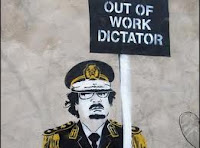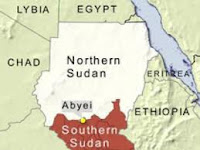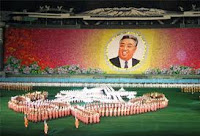“More than two years after the end of the war, many women still live in fear of violence by the state and from within their own communities”, says Alan Keenan, Crisis Group’s Senior Analyst and Sri Lanka Project Director. “The conflict has badly damaged the social fabric and has left women and girls vulnerable at multiple levels. A concerted and immediate effort to empower and protect them is needed”. Read more>>>
Monday 26 December 2011
Thursday 22 December 2011
UK Major bank report fails to identify root causes to the financial crisis
The failings were attributed to a host of factors broadly grouped under internal failings at the managerial level, in addition to the failings of global regulation and finally the failure of the FSA itself in its regulatory approach. The findings of the report essentially call for increased regulation and monitoring to be applied at various levels of management and regulation to minimise the risk of a repeat of the failings. Read more>>>
Friday 16 December 2011
Holding Libya Together: Security Challenges After Qadhafi
“Libya was liberated in piecemeal fashion, mostly by local rebellions and ad-hoc military groupings that used both military means and negotiations to achieve their goals”, says William Lawrence, Crisis Group’s North Africa Project Director. “As a result, a large number of local forces and militias grew up that could legitimately proclaim themselves national liberators”. Read more>>>
South Sudan: Compounding Instability in Unity State
“Instability must be considered in light of the complicated history of this frontline state within the “old” Sudan, the strategic interests of national powers, and the complex web of relationships and shifting alliances among the state’s political and military actors”, says Zach Vertin, Crisis Group Senior Analyst. “Some troubles have festered for years, while more recent developments – prompted by the partition of Sudan – have exacerbated instability and intensified resource pressure”. Read more>>>
Friday 9 December 2011
Eurozone Crisis – Beware of Greeks Seeking Gifts
In the last week of October the heads of the Eurozone countries announced their long awaited plan for solving the debt crisis ravaging the region. With Greece seemingly on the brink of a sovereign debt default and Portugal, Ireland, Spain. Not only to quieten the markets but also to show confidence that the politicians have a workable plan to save the region from a possible Euro meltdown. Read more>>>
Babri Masjid Demolition 19 years ago
It was L. K. Advani who first brought the Babri Masjid issue to the forefront of the BJP’s strategy to achieve power. His extremely provocative and dangerous ‘rath yatra’ (chariot journey) whipped up religious sentiment, polarised society, generated passions and stirred Hindus and Muslims with pernicious results. Read more>>>
Saturday 3 December 2011
Syrian crisis draws in regional and major powers
The Arab League’s announcement of economic sanctions against President Bashar al-Assad’s regime has set in motion a rapidly escalating crisis that is drawing in both the regional and major powers. The offensive being mounted against Syria now threatens a wider conflagration in the region. Read more>>>
Friday 2 December 2011
South Korea: The Shifting Sands of Security Policy
South Korean officials have repeatedly stated that any further attacks would be met with a firm response. The rules of engagement have been changed so that rather than limiting retaliation to the same type of weapon used in the attack, the South will use whatever force it deems necessary, including air strikes. Instead of following the earlier patterns of provocations and ensuing attempts at compromise, Lee warned the North there would be no reconciliation until they apologised. Read more>>>
Myanmar: A New Peace Initiative
The international community has an important role to play in support of peace and development in Myanmar. It should understand the complexities of the conflict and support conflict resolution without making the attainment of peace a prerequisite for improving bilateral relations or beginning to lift sanctions. Encouraging the protagonists to find their own way to stop the fighting and make headway on a political settlement would simultaneously help meet key Western benchmarks on political prisoners, human rights, and democracy. Read more>>>
Subscribe to:
Posts (Atom)









